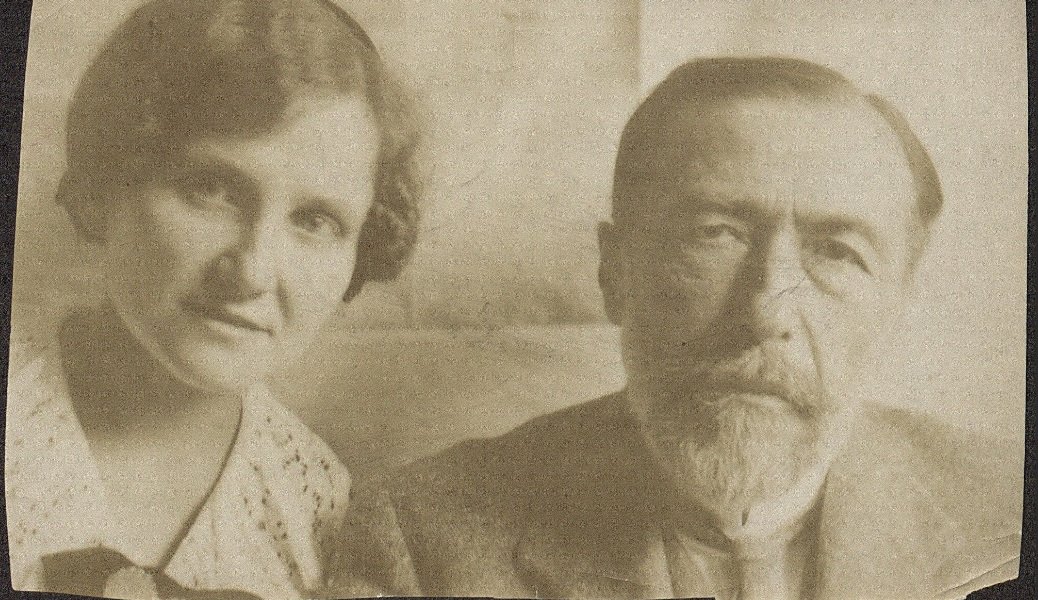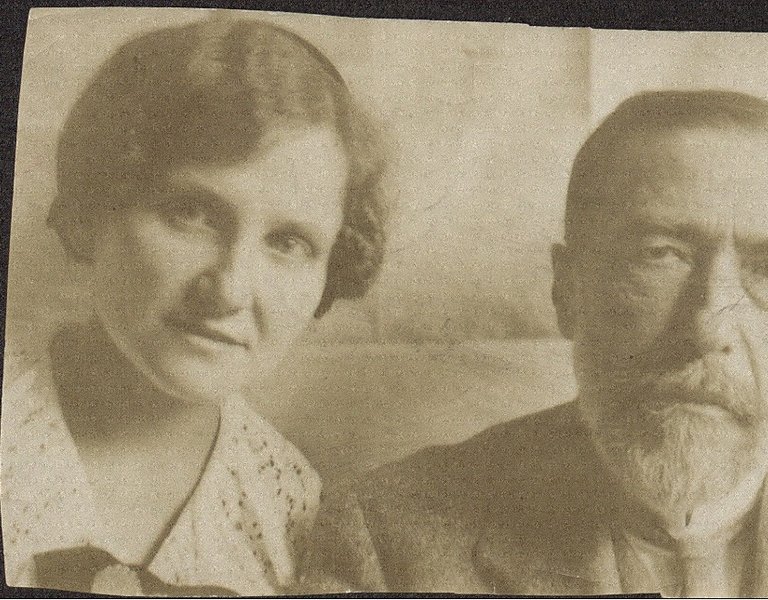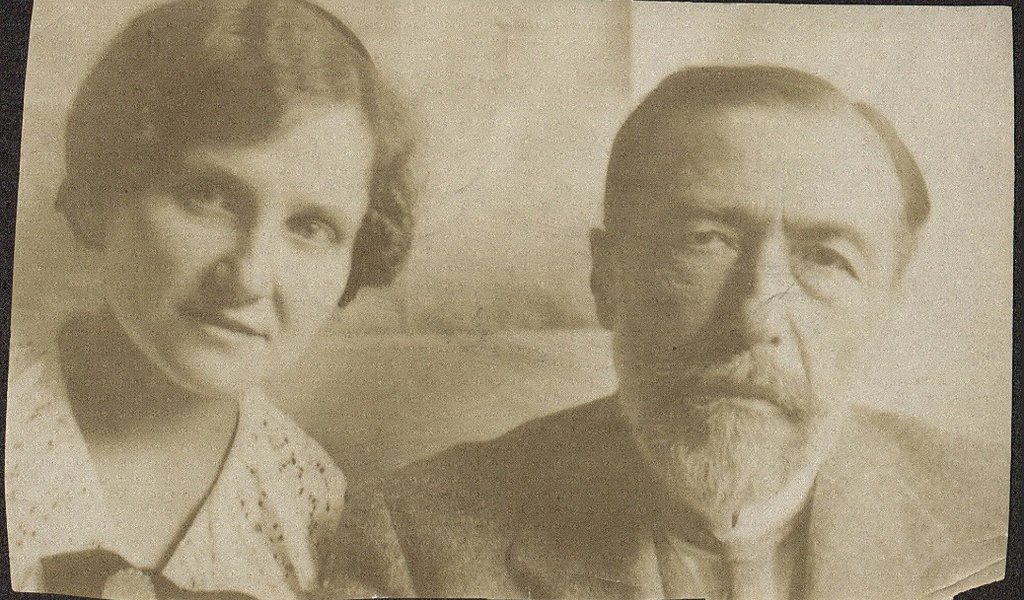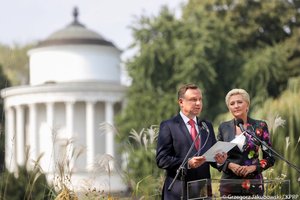Joseph Conrad: A Pole with doubts
Paradoxically, one might say that Conrad is more Polish today than when he was alive. Which makes him a better Pole too.
Were we to treat Gazeta Wyborcza’s effusions entirely seriously, the conclusion would be that the Polish Sejm’s reason for declaring this year to be Joseph Conrad Year was the desire to “reclaim” this English-language writer and transplant him into Polish literature. This alone would not be such a bad thing, as he is a worthy writer, except that, all differences aside, he was as much a Polish writer as Adam Mickiewicz was a Lithuanian poet. Or a Belarusian one, born as he was (Mickiewicz, not Conrad) in Zaosie (Zavosse) near Nowogródek (Navahrudek). For the sake of form, let’s recall that Joseph Conrad was born as Józef Teodor Konrad Korzeniowski of the Nałęcz coat-of-arms in 1857 in Berdyczów (Berdychiv) – so in the Ukraine, just to confuse matters further.
Conrad’s birth certificate is in fact even more complicated. It was issued in Żytomierz (Zhytomyr) five years after the future writer was born in the Berdyczów hospital. Żytomierz was where his ceremonial baptism now took place, except that the child himself was absent. He was in Warsaw at the time, or already in exile with his parents in Vologda. We only know the date (1862) and that the document must have been issued in mysterious circumstances, since Conrad’s father was imprisoned in the Warsaw Citadel, his next stop being exile.
I understand that such matters do not keep Western Conrad scholars awake at night. And yet all those who see in the author of Heart of Darkness only an English writer, ignoring his Polish roots (as well as his French experiences and eminent grounding in French – not Polish, and certainly not English – literature), bring to mind the astounding arrogance of the British critic Edmund Gosse. In 1927, three years after Conrad’s death, Gosse responded to Georges Jean-Aubry’s first biography of the writer by pronouncing that, “I admit that I could bear to be told less about all these Kaszewskis and Treminskis [!]. They do not, in their exotic obscurity, help me to shed fresh light on the author of Lord Jim.”
Oh please! Conrad lived and worked at the intersection of three cultures: Polish, French and English. His “Slavic” nature, sometimes emphasised in the West, is hardly exotic, and remains mysterious only to those who know neither his work nor his biography. Of course, nobody wants to clad him in national dress.
Pride and discomfort
In 1914, for example, he wrote a memorandum on the Polish question, stressing that Russia would never allow Poland’s independence. He hated Germans (and specifically Prussians) just as much. In a letter to André Gide from 1916 he wrote of his dreams: “What survives in me in all its vigour is an unshakable confidence in the future, the deep conviction that the shadow of Germanism will pass from this earth on which I have wandered much.” The same year, doubtless encouraged by Joseph Rettinger, he wrote and submitted to the British Foreign Office another memorandum concerning the reconstruction of the Polish state as a monarchy under the patronage of England and France. The content of his letters makes it clear that these were pipe dreams in which he did not believe, but he certainly hoped to impart some influence on the British government’s position towards the Polish question. Yet the response from Foreign Secretary Viscount Grey was dismissive: “Entirely out of the question”.
In February 1918 – after the Bolshevik Revolution and US President Wilson’s Fourteen Points – the disillusioned Conrad wrote to John Quinn: “Whatever happens Russia is out of the war now. The great thing is to keep the Russian infection, its decomposing power, from the social organism of the rest of the world. In this Poland will have to play its part on whatever lines her future may have to be laid. And at the same time she will have to resist the immense power of Germanism which would be death too, but in another shape. Whether that nation over-run, ruined and shaken to the very foundations of its soul will rise to this awful task I really don’t know. What assistance she will be able to get from the Western world nobody can tell. Never was there such a darkness over a people’s future, and that, don’t forget, coming after more than a century of soul grinding oppression in which apart from a few choice spirits the Western world took no interest. Fine words have been given to it before. And the finer the words the greater was always the deception. One evening in August in 1914 in a dimly lit, big room I spoke to a small group of Poles belonging to the University and the political life of the town of Cracow. […] I had also the courage to tell them: ‘Have no illusions. If anybody has got to be sacrificed in this war it will be you. If there is any salvation to be found it is only in your own breasts, it is only by the force of your inner life that you will be able to resist the rottenness of Russia and the soullessness of Germany. And this will be your fate for ever and ever. For nothing in the world can alter the force of facts.’
And if I had to speak to them to-morrow I would repeat these very words. I don’t remember now what Mr Wilson said in his last utterance. There is an awful air of unreality in all the words that are being flung about in the fact of such appalling realities.”
As a result, Conrad greeted the end of the First World War and Poland’s imminent independence with mistrust, bitterness and scepticism. He made this plain in a letter to the High Representative of His Majesty’s Government Sir Hugh Clifford: “As to Poland, I have never had any illusions and I must render the Poles the justice to say that they too had very few. The Polish question has been buried so long that its very political importance is not seen yet. In this war it had not even an episodic importance. If the Alliances had been differently combined the Western Powers would have delivered Poland to the German learned pig with as little compunction as they were ready to give it up to the Russian mangy dog.”
Years ago I asked Zdzisław Najder, Poland’s most eminent Conrad scholar, about this. He explained that Polish independence had become a problem for the writer himself: “He had to account for this sin of lack of faith, lack of hope to himself. For him Poland’s revival was a problem, because with all the joy at this fact he felt shame. […] For Conrad the years 1914-1920 were a cause for pride in Poland, but also a source of discomfort – because where had he been? He may have retained faith, but faith is worth little without hope.”
The very heart of the nation
Conrad had been accused of neglecting his national duties before, and in a much sharper tone. His chief disparager was without doubt Eliza Orzeszkowa. And the whole affair was triggered by Wincenty Lutosławski, who in 1899 wrote the rather inapposite article “A visit to Conrad” for the Saint Petersburg-based Polish weekly Kraj, and in its tracks a decidedly ungainly commendation of emigration for economic purposes which he titled “Emigration of talents”. In this piece he quoted the now increasingly famous writer as responding to Lutosławski’s question of why he did not write in Polish as follows: “Sir! I value our beautiful Polish literature too highly to add my ineffectual bungling to it. But for the English my capacities suffice, and provide me with a living.” It is highly likely that Conrad said no such thing, yet the horse had already bolted, and shortly afterwards, Eliza Orzeszkowa wrote in the same publication to protest against the emigration of talented people, reserving the following paragraph for the author of Heart of Darkness: “Speaking of books, I must say that this gentleman, writing popular and handsomely paid novels, has come close to giving me an attack of nerves. Reading about him, I felt something slippery and insipid creeping in my throat, and how! […] Creative capacity is the very crown of the plant, the very peak of knowledge, the very heart of the heart of the nation. And to take away this flower, this peak, this heart from one’s own nation and give it to the Anglo-Saxons, who want for nothing, just because they pay more for it! How one might even think of this – without shame!”
The worldly folk at the Wyborcza office would no doubt view Orzeszkowa’s dilemmas as archaic and not worthy of mention, but they troubled Conrad deeply, and with good cause. Orzeszkowa was no foolish young girl writing out of boredom, but a writer of the calibre of Jane Austen, known abroad and translated into foreign languages – admittedly mostly Russian, but for a Polish writer this was one of the most, if not the most important language. She did not have to stay at home in Grodno, but could have set up a much more comfortable and better life for herself. And the question, to quote Zdzisław Najder, of “whether a writer should cross to another culture, to another language, remained, and it was better to ask it openly than in secret”.
Incidentally, when we observe the way our contemporary authors click their heels when writing in Polish with their eye on readers in Frankfurt or Berlin, Conrad becomes even more monumental. He must have had a sporting spirit of honest competition and fair play.
Honour and responsibility
Twenty years ago, I concluded my conversation with Zdzisław Najder on Conrad with a Gombrowiczesque question: was the author of The Secret Agent a good Pole?
“I would say,” Najder replied, “that his own impression was that he was a good Pole… with doubts. His contemporaries’ impression was that he was not a good Pole, and I think that one should respect this. Even living abroad, writing in English, Conrad could from time to time have left his cocoon and done something more, just to prove his faith in the loss. This was probably also because as a Pole he did not want to demean himself by asking for charity, as demanding Poland’s right to exist was very demeaning for somebody who had a grand image of his own nation. But tough, sometime you have to make sacrifices.”
Not too long ago, Krzysztof Koehler, the deputy director of the Polish Book Institute, was derided for saying that after Brexit and the attacks that have taken place on Poles in the UK, the British have an extra important reason to be interested in “Conrad Polish-style”. And yet he is right. The author should serve as a showcase, popularised as much as possible, of Polish culture, which is so rich that even beyond the country’s borders and in a foreign language it was able to create outstanding works. Without a knowledge of this culture one cannot truly understand Conrad, who seems exotic from a Western point of view. Just as for Poles, without an immersion in British history and culture, the author of The Shadow Line is alien.
True, Conrad was no Sienkiewicz – and in fact his aversion to the Polish Nobel laureate was well-known. This was not just about professional jealousy. It was more Conrad’s failure to understand not just the patriotic function, but also the lessons imparted by Sienkiewicz’s novels, including, and perhaps especially those written “for the strengthening of hearts”. The fact that Conrad was right to be concerned for the fate of his homeland, in which Polish-Ukrainian disputes increasingly ended in bloodshed, is another matter entirely.
Joseph Conrad died in 1924. Fifteen years later Poland disappeared from the map once again. And this was when young people from the underground Home Army learned about responsibility, honour and being true to one’s word from him and his books. Today once again it is worth reading Heart of Darkness and Typhoon, or The Secret Agent and Under Western Eyes. In Britain, meanwhile, it might be worth getting to know the “Polish Conrad” to understand what is obvious for Poles in his work: the entirely different perspective on imperialism and colonialism (well, almost, as Conrad did not come close to accepting the Irish aspirations for independence) and authentic concern for the principles of civic solidarity.
Paradoxically, one might say that Conrad is more Polish today than when he was alive. Which makes him a better Pole too.
Krzysztof Masłoń
 Source: Do Rzeczy
Source: Do Rzeczy
17.02.2017







